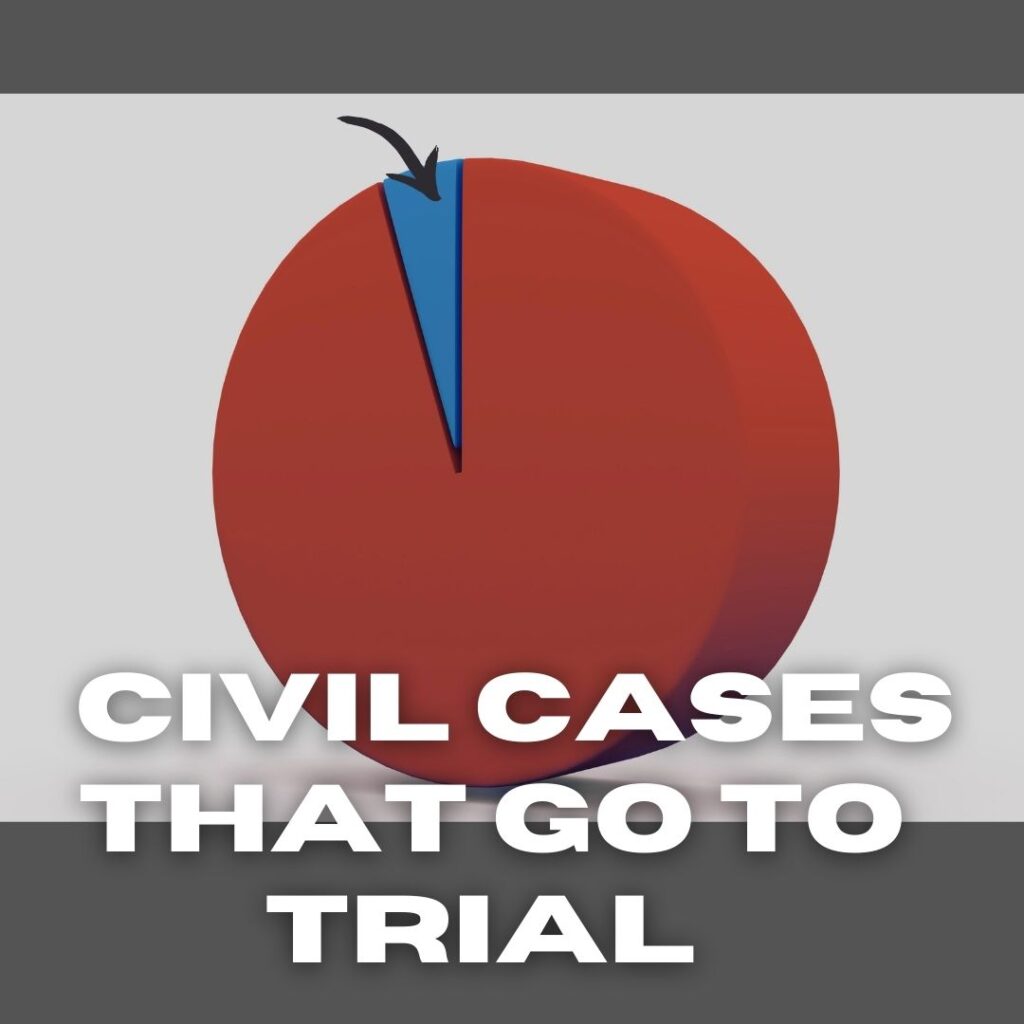I am a board-certified civil trial specialist. This means that I have handled a certain number of judge and jury trials, passed a board exam, handled a sufficient number of depositions and hearings, and received the requisite number of recommendations from judges and attorney colleagues. When I took the board exam more than four years ago now, there was only one other attorney who took the exam. The reason being, so many civil cases settle short of trial that most attorneys do not have the necessary trial experience to become board certified. So how many civil cases actually go to trial?
The percentage of civil cases that settle short of trial is exceptionally high. By some estimates, 90% plus. By others, as high as 95% or more. The reason for this high rate of settlement vary from case-to-case, but generally are:
- the cost of litigation as a whole, particularly the discovery process;
- the cost of trial; and
- the risk of trial. <– I want to focus on the third point here.
We never know with certainty how a judge or jury will decide an issue. As a trial attorney, we know the governing law and what evidence we want to elicit at trial, but thereafter, the decision is out of our hands. A judge or jury may not see the facts the same way we do. Or, and oftentimes, there is a fact that we did not see as material that the trier of fact found vitally important. It could be that the judge or jury did not connect with the client or a key witness. The reasons why a judge or jury decides certain issues is only known if you get the opportunity to speak to them after the trial. Having been able to do this, the rationale that juries give for some of their decisions is fascinating but also supports that we never quite know how they will view the evidence, a witness or your client.
We prepare each case to go to trial. While the vast many settle short of trial, such preparation puts our clients in the best position for a favorable settlement or success at trial.

The material contained herein is provided for informational purposes only and is not legal advice, nor is it a substitute for obtaining legal advice from an attorney. Each situation is unique, and you should not act or rely on any information contained herein without seeking the advice of an experienced attorney. All information contained in links are the property of the linked site.

